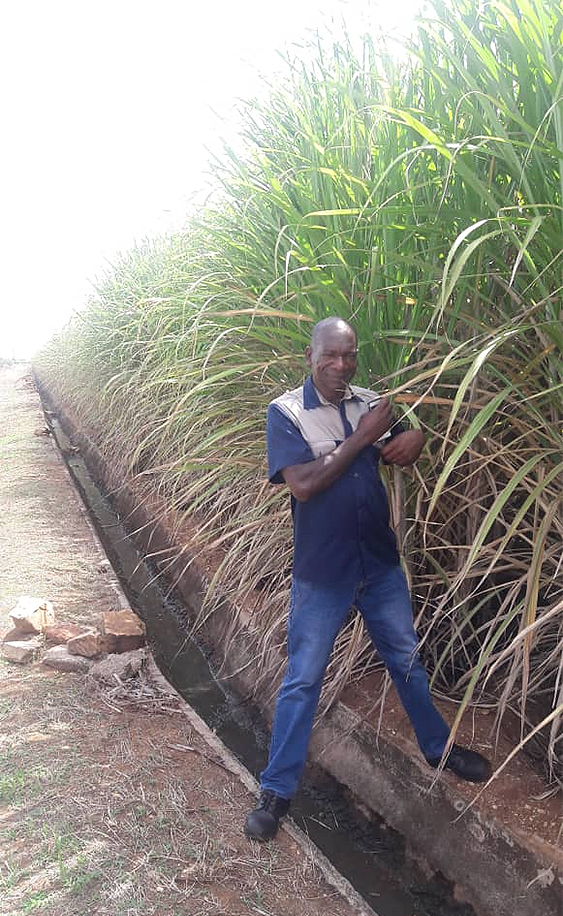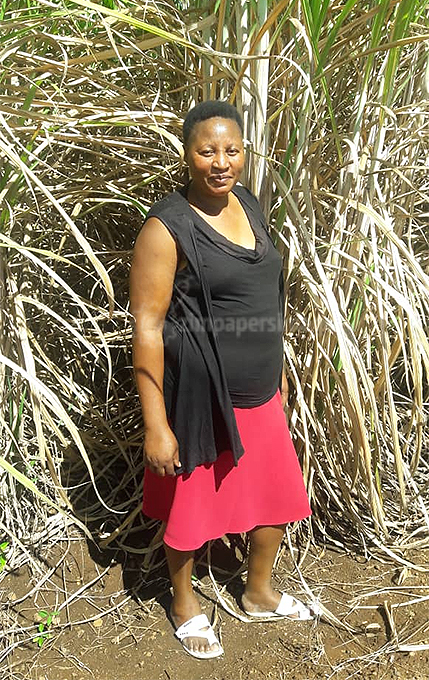Black empowerment taking root in lowveld

Tawanda Mangoma in CHIREDZI
Before the turn of the millennium and the advent of the land reform programme, the sugarcane farming sector was largely controlled by a few white farmers.
Most black communities living around the sugarcane fields contributed to the sector through offering their labour.
Following the land reform programme in 2000, the sector has undergone a lot of transformation that has seen indigenous farmers joining as outgrowers for Tongaat Hullet, which owns the Hippo Valley and Triangle sugar mills.

Mr Cornelious Shumba
Mkwasine Estate, some 60 kilometres east of Chiredzi town is now home to over 400 new indigenous farmers who are managing cane fields straddling more than 6 000 hectares, thanks to Government’s land reform programme.
Here, indigenous farmers are pushing the boundaries in terms of sugarcane production.
The farmers are writing their own success stories and these have reflected in the massive transformation of their lifestyles.
One of the success stories at the Estate is that of Mr Cornelius Shumba and his wife Rest, who are directors of Lionslake Investment Private Limited, which owns Farm 176.
The couple has managed to establish a successful sugarcane farming business on the 23,5 hectares they were allocated in 2009 under flood irrigation.
 When The Herald toured the plot this week, Mrs Shumba narrated their 10-year journey to success.
When The Herald toured the plot this week, Mrs Shumba narrated their 10-year journey to success.
“It was not easy to be where we are today,” she said.
“We did not have any experience in sugarcane production. Our experience was in the production maize, rapoko and millet.
“Sugarcane farming proved to be very different and demanding. We had to learn how to do book keeping, apply the fertilisers, and manage our irrigation water, among other key fundamentals. We had to fight to get where we are today.”
Mr Shumba said they started off by hiring plant and equipment, but over the years, they were able to buy their own equipment.
“We have managed to do a lot in terms of revenue generation and keeping our plot in good shape like you see today,” he said. “We had no tractors, no perry-loaders, no cranes, no trucks, no house, but in the last 10 years we managed to acquire most of these and a lot more.
“We now own three tractors and perry-loaders, two 30-tonne trucks and 2 Zulu cranes which load sugarcane at various loading zones in Mkwasine. We have 20 employees who are permanent and we also hire seasonal labour, especially during harvesting. We are also into cane haulage.”

The Shumbas mansion in Westwood suburb in Chiredzi
To cap it all, the couple managed to build a house in the affluent Westhood suburb of Chiredzi.
Farm operations manager Mr Wellington Mudzimiri said they were now producing over 170 tonnes of sugar cane per hectare.
“Our target is to produce over 200 tonnes, but we at times face irrigation water shortages or some delays in getting in our inputs due to the prevailing economic climate,” he said.
Despite the success they have achieved so far, Mrs Shumba they are still hungry for more and has since enrolled for a diploma in Sugarcane Production offered by Great Zimbabwe University campus in Chiredzi.
The couple’s success has dared other indigenous farmers in Chiredzi to dream.
A lot of farmers are now eager to venture into sugarcane production, which has been buoyed by the availability of irrigation water from such dams as Tokwe-Mukosi, Manjirenji, Siya, Bangala, Muzhwi, Bindamombe and Lake Mutirikwi.








Comments